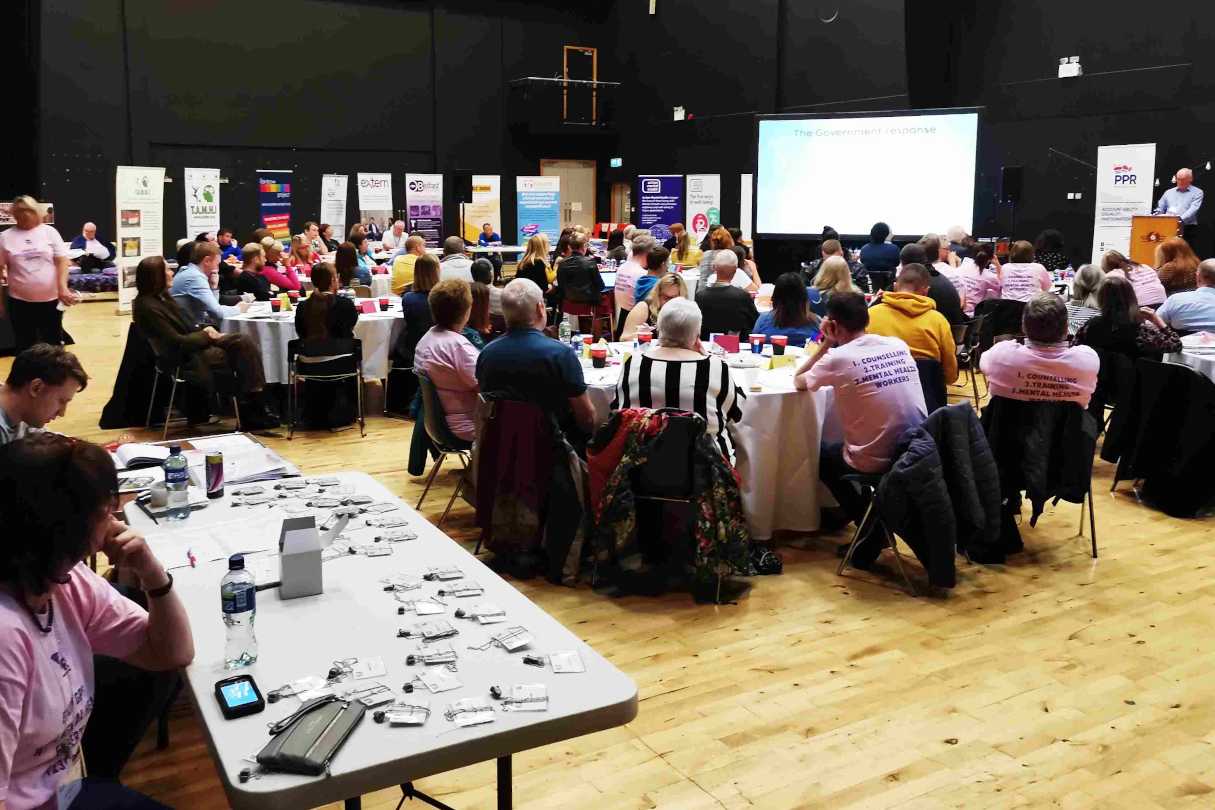No Plasters and Pills for Social Ills: Mental Health Strategy Must Address Harmful Systems (Part Two)
In the second article of the series, Sara Boyce asks what principles should underpin the government's new mental health strategy.
In June last year the Minister for Health appointed Professor Siobhan O’Neill as the interim ‘Mental Health Champion’. The new office has an important role to play in promoting a different narrative around mental health. However, the ability of this office to effectively challenge government departments on their harmful policies, such as PIP assessments to name but one, when they do not have any statutory powers to act, will ultimately be extremely limited, a fact the Department of Health is fully aware of.
The Department of Health already recognises that there may be a need to re-visit the legal standing of the Champion. This should be done with all urgency, in advance of the appointment of a permanent champion later this year. An office with statutory powers and independent from government is required.
The Mental Health strategy needs to address the current state of mental health services here, but it also needs to look beyond those services at the causes of deteriorating mental health more generally.
Within mental health services, the existing funding baseline is appallingly low. For ten years the mental health budget has hovered just above 5% of the total health budget, a share that is lower than the global average. Soul-destroying waiting lists for primary care mental health assessments, psychological therapies, counselling, CAMHS and specialist services have become normal and mental health treatment (when it is available) is hyper-medicalised.
Campaigns for even the most moderate of changes, such as the #123GP campaign for the introduction of a 28-day waiting-time target for counselling, have been met with institutional arrogance and indifference. In January 2020, an open letter signed by hundreds of figures from public life here, calling on the Minister for Health to declare a public health emergency on suicide, didn’t even receive an official acknowledgement, much less a substantive response. This at the same time as the Minister for Health was publicly pledging his commitment to tackling mental health and suicide.
There are a number of important first principles that must be established before the Department of Health quickly jumps ahead into the detail of altering existing services or even developing new ones.
In what direction does the Minister intend to steer this strategy? What are the philosophical underpinnings of the strategy? Will it be more of the same medicalised model, one which decontextualises emotional distress and relies on questions like ‘what’s wrong with you?’ and ‘how can we fix you’? Or will the starting point be more enlightened questions, ‘what happened to you?’ and ‘how can we fix the systems and processes that caused you to experience distress?’
Linked to these key questions is the issue of resources for mental health. How will resources be prioritised? Will they be skewed towards building shinier, multi-million-pound mental health facilities or towards tackling the social determinants of good mental health as highlighted above, and towards the provision of compassionate, trauma-informed services? Will resources, appropriately targeted, finally move beyond the derisory 5.3% of the total health budget?
What is required now of those in power, to borrow a phrase from the Irish poet, Austin Clarke, is to ‘Stop, stop and listen, knowledge is found among the branches’.
Unless these fundamental questions are considered and answered, the genuine potential presented by the development of a new mental health strategy will be squandered. Before Covid-19 the need for a paradigm shift in relation to mental health was urgently needed. The pandemic makes that need even more critical.
Finally, the answers to these questions will not be found around boardroom tables or in technical documents. What is required now of those in power, to borrow a phrase from the Irish poet, Austin Clarke, is to ‘Stop, stop and listen, knowledge is found among the branches’.
Those with lived experience of trauma and emotional distress are the experts. There is a need for a total shift away from what Professor Dainius Puras, UN Special Rapporteur on the Right to Health, has described as the ‘deeply entrenched power asymmetries within mental health systems’, towards the lived experience of people themselves. This year has already turned so much on its head. The old way of looking at and thinking about mental health must also be overturned. This new mental health strategy presents a vital opportunity to do just that. It must not be wasted.